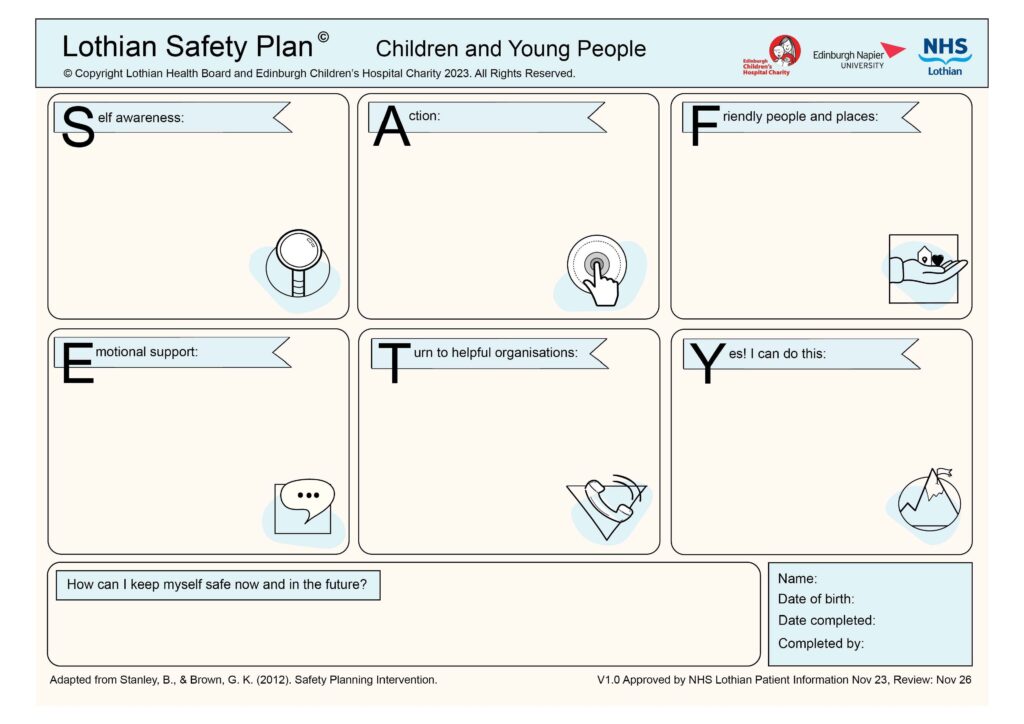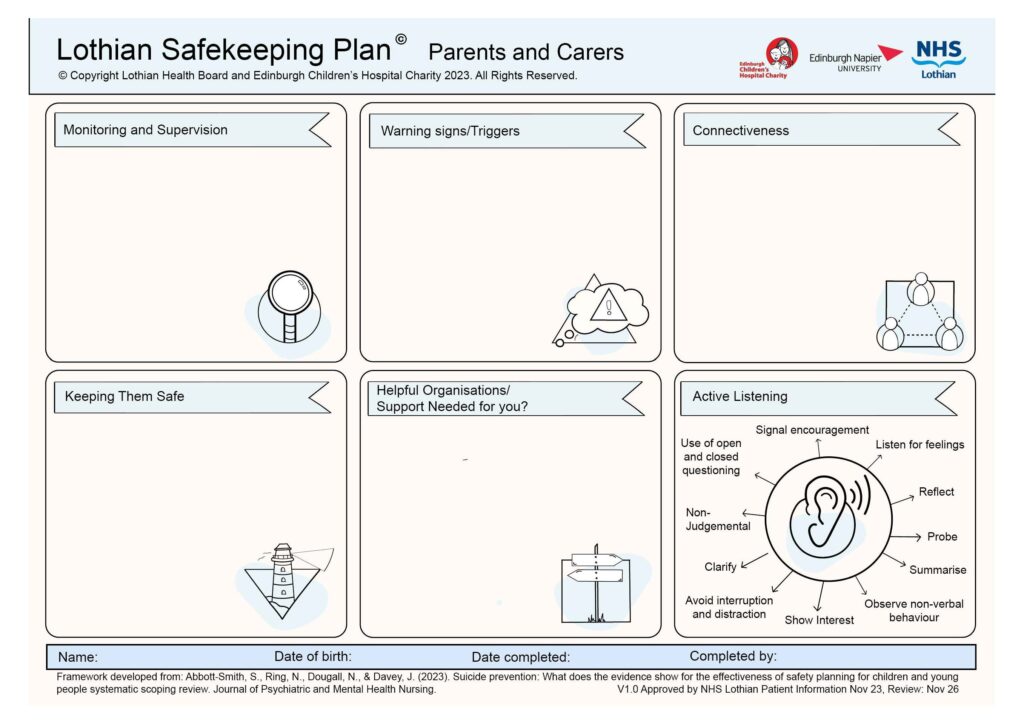Scholar Publication Series: Susan Abbott-Smith
- Home
- Scholar Publication series
- Scholar Publication Series: Susan Abbott-Smith
- December 19, 2023
- Scholar Publication Series

Name: Susan Abbott-Smith
Scholarship type: FNF Research Scholarship 2019-2020
Publication title: Suicide prevention: What does the evidence show for the effectiveness of safety planning for children and young people? A systematic scoping review
Publication link: https://onlinelibrary.wiley.com/doi/10.1111/jpm.12928

Abstract
Introduction: Suicide is a leading cause of death for children and young people and its prevention is a global priority. Many Mental Health Services employ safety planning as a brief intervention. There is some evidence of safety planning effectiveness for adults, but little is known about its effectiveness with young people.
Aim: To synthesise research reporting safety planning effectiveness for children/young people with suicidal ideation and identify good practice recommendations.
Inclusion criteria: The review relates to safety planning around suicide prevention for children/young people aged less than 18 years, even if it was within a wider intervention. The review was inclusive of all clinical areas (including mental health, primary care, etc), any geographical location or social economic status and inclusivity around the method of delivery.
Methods: A systematic scoping review of literature reporting effectiveness data for the use of safety planning with children/young people with suicidal ideation. The systematic scoping review protocol (pre-registered with Open Science Framework) followed Joanna Briggs Institute conduct guidance and PRISMA-ScR checklist.
Data analysis and presentation: Fifteen studies were reported during 2008 – 2021. Overall, there is promising, but limited, evidence of effectiveness for safety planning for children/young people but with complete evidence gaps for some demographic sub-groups. Evidence determined that healthcare professionals should deliver a safety planning intervention that is completed collaboratively, developmentally appropriate, and recognises parental/carer involvement.
Discussion and implications for practice: Further research is needed but current evidence suggests safety planning should be a routine part of care packages for children/young people with suicidal ideation proportionate to their needs. Developing/implementing these plans needs bespoke health professional training and additional support and resources for parents/carers should be developed.
Impact of the FNF Scholarship
The Scholarship enabled me to start my PhD and thus do the review on safety planning for children and young people.
I found the support from the other FNF Scholars immensely helpful as it was during the Covid-19 pandemic.
The FNF Scholarship enabled me to work on my PhD and gave me a great peer support network. I am still part of a WhatsApp group with eight other Research Scholars.
I cannot underestimate the thanks I have for FNF to enable me to start my PhD journey and develop this innovate clinical tool.
Impact So Far and Next Steps
This systematic scoping review brings together all research evidence since 2008 that reported how effective safety planning is for children/young people. Safety planning is now widely used in suicide prevention; however, it was developed for use with adults, and little was known about its effectiveness for children/young people.
Findings from my review highlighted that when healthcare professionals help children/young people who are suicidal, they need to ensure that the safety plan is completed collaboratively with them and that it is appropriate for their age and development. It also highlighted that
parents/carers have a key role in safety planning.
From my initial research I recognised that there was a need to involve parents in safety planning. Therefore, an additional tool, a Lothian Safekeeping Plan©, has been developed by myself and the other authors. After the review we looked at the evidence of what’s required for parents and then developed the Lothian Safekeeping Plan©. I believe that mental health nurses have a key role in routinely involving parents in safety planning. The Lothian Safekeeping Plan© is one tool that can be used to support this. I implemented the pilot project before Covid-19, after that we rolled it out completely.
The impact of this framework is still to be fully evaluated, and I hope to do this in the near future, but I can say that the work has had huge clinical impact already and feedback from parents is that it is very helpful. I’m now in the last year of my PhD. Since the Scholarship I have undertaken two more pieces of research and am writing those up now. I have also recently presented a poster on this work at the International Summit on Suicide Research October 2023 in Barcelona.
Additional Information
Sue has had a varied nursing career, and this has included working in a street clinic in India and managing the medical needs of a refugee camp in Liberia and Rwanda. Her most recent experience of 18 years plus, is working within the field of Child and Adolescent Mental Health Service (CAMHS). This has included working with hard to reach and difficult to engage young people.
Sue currently works for NHS Lothian Children and Adolescent Mental Health Services as a Specialist Mental Health Practitioner. She spends one day a week focusing on her PhD.


Click the link to view/download the full Scholar Publication Showcase.